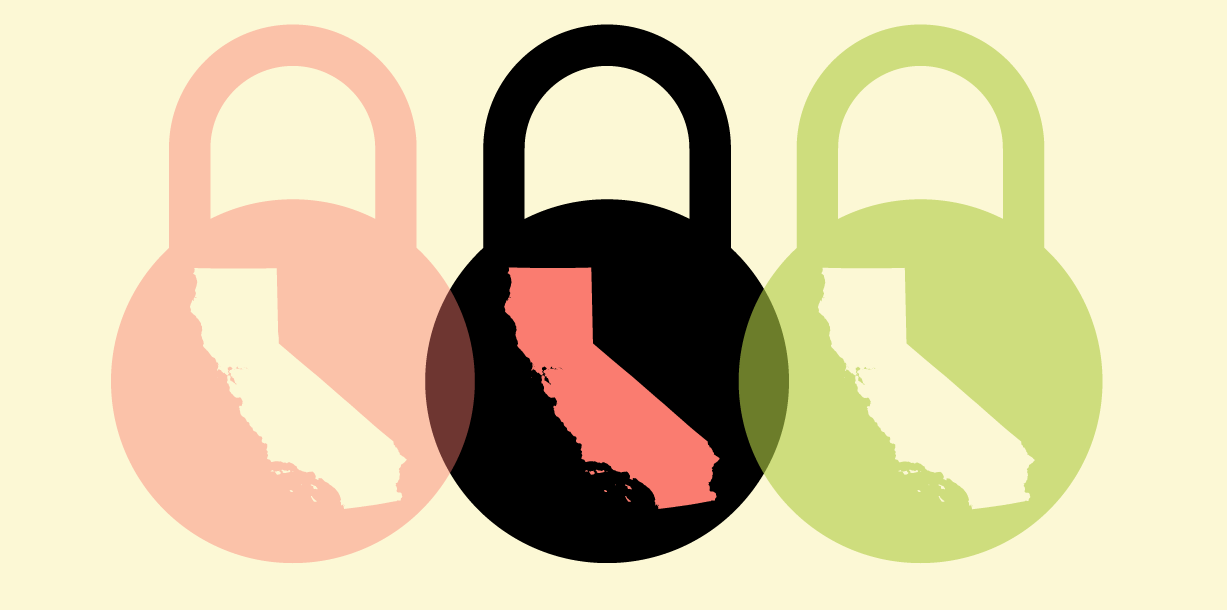KOSA’s Online Censorship Threatens Abortion Access
For those living in one of the 22 states where abortion is banned or heavily restricted, the internet can be a lifeline. It has essential information on where and how to access care, links to abortion funds, and guidance on ways to navigate potential legal risks. Activists use the internet to organize and build community, and reproductive healthcare organizations rely on it to provide valuable information and connect with people in need.
But both Republicans and Democrats in Congress are now actively pushing for federal legislation that could cut youth off from these vital healthcare resources and stifle online abortion information for adults and kids alike.
This summer, the U.S. Senate passed the Kids Online Safety Act (KOSA), a bill that would grant the federal government and state attorneys general the power to restrict online speech they find objectionable in a misguided and ineffective attempt to protect kids online. A number of organizations have already sounded the alarm on KOSA’s danger to online LGBTQ+ content, but the hazards of the bill don’t stop there.
KOSA puts abortion seekers at risk. It could easily lead to censorship of vital and potentially life-saving information about sexual and reproductive healthcare. And by age-gating the internet, it could result in websites requiring users to submit identification, undermining the ability to remain anonymous while searching for abortion information online.
Abortion Information Censored
As EFF has repeatedly warned, KOSA will stifle online speech. It gives government officials the dangerous and unconstitutional power to decide what types of content can be shared and read online. Under one of its key censorship provisions, KOSA would create what the bill calls a “duty of care.” This provision would require websites, apps, and online platforms to comply with a vague and overbroad mandate to prevent and mitigate “harm to minors” in all their “design features.”
KOSA contains a long list of harms that websites have a duty to protect against, including emotional disturbance, acts that lead to bodily harm, and online harassment, among others. The list of harms is open for interpretation. And many of the harms are so subjective that government officials could claim any number of issues fit the bill.
This opens the door for political weaponization of KOSA—including by anti-abortion officials. KOSA is ambiguous enough to allow officials to easily argue that its mandate includes sexual and reproductive healthcare information. They could, for example, claim that abortion information causes emotional disturbance or death, or could lead to “sexual exploitation and abuse.” This is especially concerning given the anti-abortion movement’s long history of justifying abortion restrictions by claiming that abortions cause mental health issues, including depression and self-harm (despite credible research to the contrary).
As a result, websites could be forced to filter and block such content for minors, despite the fact that minors can get pregnant and are part of the demographic most likely to get their news and information from social media platforms. By blocking this information, KOSA could cut off young people’s access to potentially life-saving sexual and reproductive health resources. So much for protecting kids.
KOSA’s expansive and vague censorship requirements will also affect adults. To avoid liability and the cost and hassle of litigation, websites and platforms are likely to over-censor potentially covered content, even if that content is otherwise legal. This could lead to the removal of important reproductive health information for all internet users, adults included.
A Tool For Anti-Choice Officials
It’s important to remember that KOSA’s “duty of care” provision would be defined and enforced by the presidential administration in charge, including any future administration that is hostile to reproductive rights. The bill grants the Federal Trade Commission, majority-controlled by the President’s party, the power to develop guidelines and to investigate or sue any websites or platforms that don’t comply. It also grants the Executive Branch the power to form a Kids Online Safety Council to further identify “emerging or current risks of harms to minors associated with online platforms.”
Meanwhile, KOSA gives state attorneys general, including those in abortion-restrictive states, the power to sue under its other provisions, many of which intersect with the “duty of care.” As EFF has argued, this gives state officials a back door to target and censor content they don’t like, including abortion information.
It’s also directly foreseeable that anti-abortion officials would use KOSA in this way. One of the bill’s co-sponsors, Senator Marsha Blackburn (R-TN), has touted KOSA as a way to censor online content on social issues, claiming that children are being “indoctrinated” online. The Heritage Foundation, a politically powerful organization that espouses anti-choice views, also has its eyes on KOSA. It has been lobbying lawmakers to pass the bill and suggesting that a future administration could fill the Kids Online Safety Council with “representatives who share pro-life values.”
This all comes at a time when efforts to censor abortion information online are at a fever pitch. In abortion-restrictive states, officials have already been eagerly attempting to erase abortion from the internet. Lawmakers in both South Carolina and Texas have introduced bills to censor online abortion information, though neither effort has yet to be successful. The National Right to Life Committee has also created a model abortion law aimed at restricting abortion rights in a variety of ways, including digital access to information.
KOSA Hurts Anonymity Online
KOSA will also push large and important parts of the internet behind age gates. In order to determine which users are minors, online services will likely impose age verification systems, which require everyone—both adults and minors—to verify their age by providing identifying information, oftentimes including government-issued ID or other personal records.
This is deeply problematic for maintaining access to reproductive care. Age verification undermines our First Amendment right to remain anonymous online by requiring users to confirm their identity before accessing webpages and information. It would chill users who do not wish to share their identity from accessing or sharing online abortion resources, and put others’ identities at increased risk of exposure.
In a post-Roe United States, in which states are increasingly banning, restricting, and prosecuting abortions, the ability to anonymously seek and share abortion information online is more important than ever. For people living in abortion-restrictive states, searching and sharing abortion information online can put you at risk. There have been multiple instances of law enforcement agencies using digital evidence, including internet history, in abortion-related criminal cases. We’ve also seen an increase in online harassment and doxxing of healthcare professionals, even in more abortion-protective states.
Because of this, many organizations, including EFF, have tried to help people take steps to protect privacy and anonymity online. KOSA would undercut those efforts. While it’s true that our online ecosystem is already rich with private surveillance, age verification adds another layer of mass data collection. Online ID checks require adults to upload data-rich, government-issued identifying documents to either the website or a third-party verifier, creating a potentially lasting record of their visit to the website.
For abortion seekers taking steps to protect their anonymity and avoid this pervasive surveillance, this would make things all the more difficult. Using a public computer or creating anonymous profiles on social networks won’t keep you safe if you have to upload ID to access the information you need.
We Can Still Stop KOSA From Passing
KOSA has not yet passed the House, so there’s still time to stop it. But the Senate vote means that the House could bring it up for a vote at any time, and the House has introduced its own similarly flawed version of KOSA. If we want to protect access to abortion information online, we must organize now to stop KOSA from passing.
















